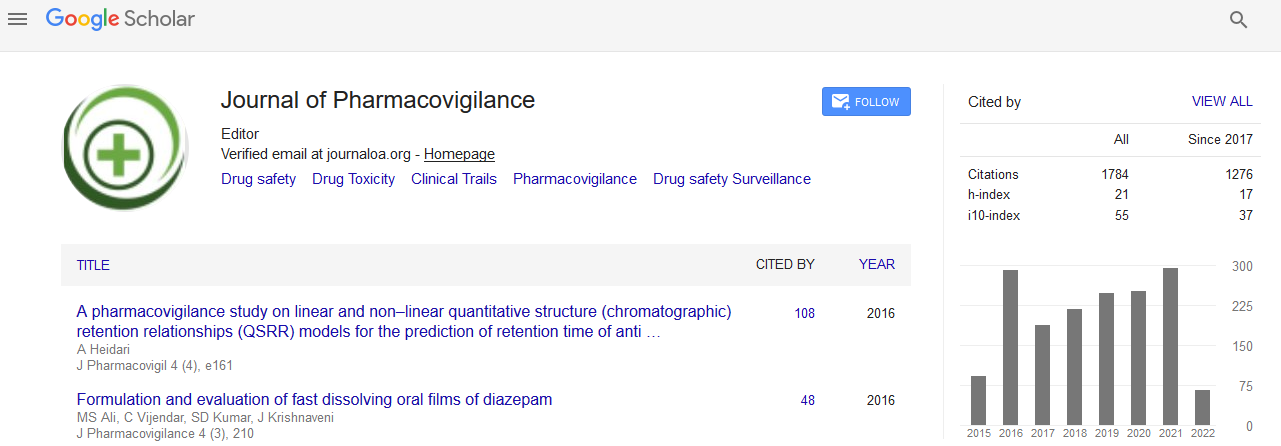Indexed In
- Open J Gate
- JournalTOCs
- The Global Impact Factor (GIF)
- RefSeek
- Hamdard University
- EBSCO A-Z
- OCLC- WorldCat
- Publons
- Euro Pub
- Google Scholar
Useful Links
Share This Page
Journal Flyer

Open Access Journals
- Agri and Aquaculture
- Biochemistry
- Bioinformatics & Systems Biology
- Business & Management
- Chemistry
- Clinical Sciences
- Engineering
- Food & Nutrition
- General Science
- Genetics & Molecular Biology
- Immunology & Microbiology
- Medical Sciences
- Neuroscience & Psychology
- Nursing & Health Care
- Pharmaceutical Sciences
Prospective observational study for oxaliplatin induced hypersensitivity: Experience in a single institute during 2 years
6th Pharmacovigilance Congress
September 28-30, 2016 Toronto, Canada
Kyoung Hee Sohn
Seoul National University College of Medicine, South Korea
Posters & Accepted Abstracts: J Pharmacovigil
Abstract:
Background: Oxaliplatin-related hypersensitivity reactions (HSR) are well-known, raising a dilemma for use of critical drug in cancer patients for fear of inducing severe reactions and even fatal, anaphylactic reactions. However, the prevalence varies and data on the incubation period for sensitization and grade of severity have not been reported prospectively. Methods: We performed prospective, observational study with 745 patients treated with oxaliplatin-based chemotherapy between March 2003 and January 2015 in Seoul National University Cancer Institute. Oxaliplatin HSR was assessed by structured telephone interview. We examined prior exposure to oxaliplatin, incubation period, severity of HSR and premedication treatments. Results: During the period, a total of 745 patients were enrolled, and 148 (18.7%) HSR events were reported. Depending on patients with prior exposure to oxaliplatin, 40.3% of previous exposed group exhibited HSR (48/119), significant higher than non-exposed group. (15.9%, (100/526), p < 0.0001, by Fisher's exact test). The average median cycle of the HSR was 3.31 in previous exposed group. In contrast, previous non-exposed group experienced HSR at cycle 4.53 (p<0.0001). By National Cancer Institute criteria (version 3.0), the severity of HSR was higher in patients with a previous history of oxaliplatin than in patients without previous exposure. (Grade 2.8±0.1 (Gr 1: 8.3%, Gr 2: 25.0%, Gr 3: 47.9% and Gr 4: 18.8%) vs. Grade 2.3±0.1 (Gr 1: 14%, Gr 2: 42%, Gr 3: 41% and Gr 4: 2%), respectively (p=0.005). Conclusions: In this prospective study, we observed that patients with any prior exposure to oxaliplatin experienced earlier onset and more severe HSR with a higher frequency, despite of premedication. We concluded that patients with history of exposure to oxaliplatin HSR in early cycle with severe allergic reactions can occur and is needed for tailored modification such as desensitization.
Biography :
Kyoung Hee Sohn received a Bachelor’s degree from Kyungpook University School of Medicine. She is currently pursuing her Specialization in Clinical Pharmacolocy and Therapeutics at the Seoul National University Hospital. She has published some papers in SCI journals in the field of allergy and pharmacovigillance and is speaker in several global conferences.
Email: happydoc85@gmail.com


